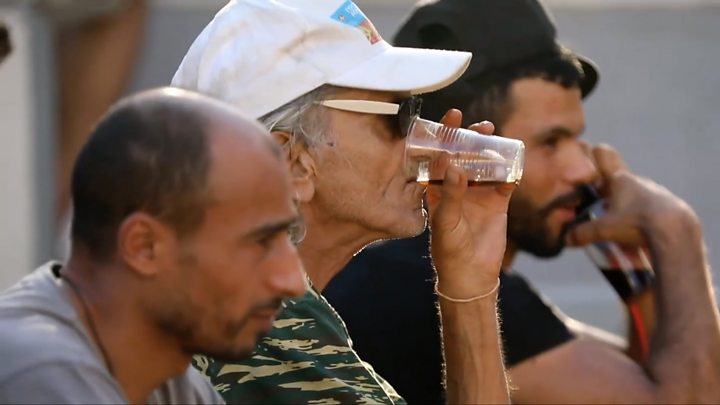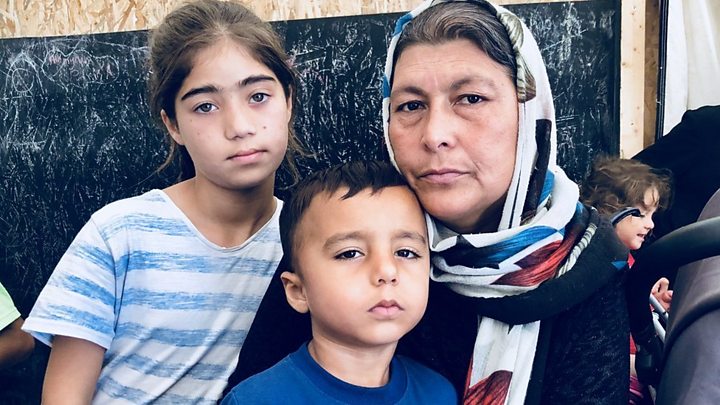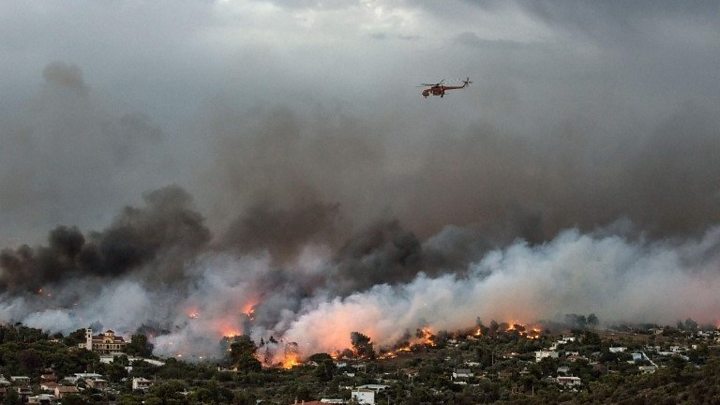Five things that matter in Greek election
Greeks go to the polls on Sunday, barely a month after the ruling, left-wing Syriza party suffered a thumping electoral defeat in European elections at the hands of opposition conservatives, New Democracy.
Prime Minister Alexis Tsipras, 44, who came to power on an anti-austerity platform six years ago, reacted by calling a snap election.
It’s Greece’s sixth since the global financial crisis in 2008, which triggered a succession of financial bailouts, and polls suggest a big conservative victory.
Here are some of the key issues at the heart of the vote.
1) Austerity and broken promises
Greeks backed Mr Tsipras’s party in January 2015, heeding his promise to end austerity. But he went on to implement tough bailout conditions from the EU and International Monetary Fund (IMF), in a chaotic year marked by bank closures and repeated votes.
After 2010, Greece received three packages worth €289bn (£259bn; $326bn), before exiting its last bailout in 2018.
The suffering has been harsh – between 2008 and 2016 the Greek economy shrank by a whopping 28%, and increasing unemployment has thrown many Greeks into poverty.
“It was a traumatic period; 275,000 businesses went under,” Constantine Michalos, president of the Athens Chamber of Commerce, told the BBC.
The backlash for Syriza has been dramatic.
The fact that Greece exited the bailout programme in August 2018 and growth has now returned, arguably as a result of that discipline, has not made the government any more popular.
“In the first quarter of 2019, growth has been restricted to 1.3%, which is weaker than expected, and this performance is a cause for concern for how we will end up this year,” Mr Michalos said, adding: “We expect a number of things from the new government that will emerge.”
2) Greeks look to conservatives
Syriza rose to power on a strong anti-establishment platform, but it has disappointed many of its supporters, especially the young.
In May’s European elections, the highest percentage of 18- to 24-year-olds (30.5%) backed Kyriakos Mitsotakis’s centre-right New Democracy (ND) party, turfed out of power by Syriza in 2015.
Greek European election result
Mr Mitsotakis, 51, is promising lower taxes, greater privatisation of public services and plans to renegotiate a deal with Greece’s creditors that would allow more money to be reinvested in the country.
Mr Tsipras, too, has promised more investment and has recently boosted pensions. His own investment policies would also have to be renegotiated with creditors as the country remains under eurozone supervision.
3) A name-calling controversy
Mr Tsipras’s popularity was further dented by a deeply unpopular agreement that ended a three-decade name dispute between Greece and its northern neighbour.
In January, the Syriza-dominated parliament pushed through the landmark deal to rename its neighbour the Republic of North Macedonia from the formal name of Former Yugoslav Republic of Macedonia.
Opinion polls indicated two-thirds of Greeks were unhappy with the name, because of its similarity to the northern Greek region of Macedonia.
Macedonia and Greece: How they solved a 27-year name row
Mr Tsipras then visited North Macedonia, where he posed for selfies alongside government buildings with Macedonian opposite number Zoran Zaev.
As protesters displayed banners declaring “Macedonia is Greek”, Mr Mitsotakis seized on the government’s unpopularity, declaring the deal a betrayal. The far right denounced MPs who backed the agreement as traitors.
Mr Mitsotakis has a personal stake in this story. His father, Konstantinos Mitsotakis, lost his job as prime minister in 1993 because of the name row.
4) Dealing with an influx of migrants
In 2015, the EU and Turkey signed an agreement aimed at stemming the number of migrants arriving in Greece by sending back to Turkey those who do not apply for asylum, or whose claim has been rejected.
Since then, there has been a dramatic fall in refugees and migrants turning up in Greece.
But they are still arriving, by sea and by land. In 2017, 36,000 came, with 50,000 last year.
So far this year, 18,294 have come, according to the United Nations refugee agency (UNHCR). Most of those crossing from Turkey are fleeing Syria, Iraq and Afghanistan.
Feeling the pressure are the eastern Greek islands, such as Lesbos and Samos.
Mr Mitsotakis has visited migrant camps on both islands, accusing the prime minister of failing to ensure that the Turkey agreement is adhered to.
A makeshift camp set up on Samos to shelter about 650 migrants is housing thousands of people in poor conditions in temporary huts and tents.
Samos residents are reportedly becoming frustrated, tourists are avoiding the island and as a result of overcrowding the Greek migration ministry has threatened to close the camp.
The opposition leader has also accused the Syriza government of not distributing funds to help deal with the crisis and he has vowed to reduce overcrowding at migrant reception centres on the islands.
Days ahead of Sunday’s vote, Syriza said it hoped to hold new talks with Ankara over the issue.
5) A deadly fire that became political
Last summer, a deadly wildfire struck the seaside village of Mati on Greece’s east coast – an area not far from Athens and a popular destination with tourists.
The massive blaze trapped people in their homes and cars, while others fled into the sea to escape the flames. Many did not make it and 100 people lost their lives.
The government blamed unlicensed construction for hindering those attempting to escape, but in the days following the tragedy, a catalogue of errors by local authorities emerged.
The government’s response prompted Mr Mitsotakis to call for those who had political responsibility to resign, as well as those who had the task of organising the response to the fire.
“I really wonder how some people… can sleep today, and carry on happily exercising their duties,” he said at the time.
His remarks were widely taken as targeting Mr Tsipras’s handling of the crisis. The prime minister accused him of trying to exploit the tragedy.
In March this year, 20 people were charged over the tragedy, including politicians, police and fire officials. One minister did offer to resign but Mr Tsipras did not accept it.
A report by prosecutors found “there was an absolute lack of communication, chaos and a collapse of the system,” and that officials had made “criminal mistakes and omissions during the handling of the wildfires”.
Source: Read Full Article






